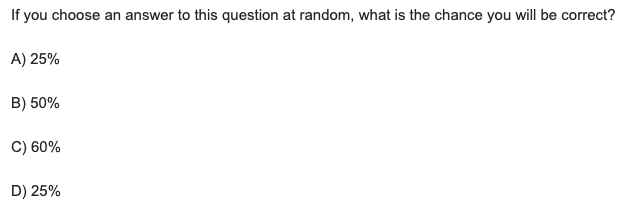A few years ago, I came across the following multiple choice question:

Argue about the solution all you’d like (oh, and people argue about the solution), the beautiful part of this, for me, is that the question is not really the question. The point of the exercise is not to complete the exercise, it’s to dwell a while in the complexities it offers. By constructing the argument, you interact with notions of odds, randomness, probability, and the like. This is similar to the idea of #SandwichChat, where the point is not to define what a sandwich actually is, but, rather, to play with emerging definitions and consider their consequences. I love these sorts of activities, because they, almost unexpectedly, turn our own thinking upon ourselves. They have a way of snapping us out from the familiar ebb and flow of the mathematics classroom, whereby prompts are passed to solvers who manufacture resolutions and, in turn, re-sell them back to teachers at increased costs. Teachers cover this inflation by remunerating the students with a most precious commodity–grades. And so the classroom economy ticks forward.1